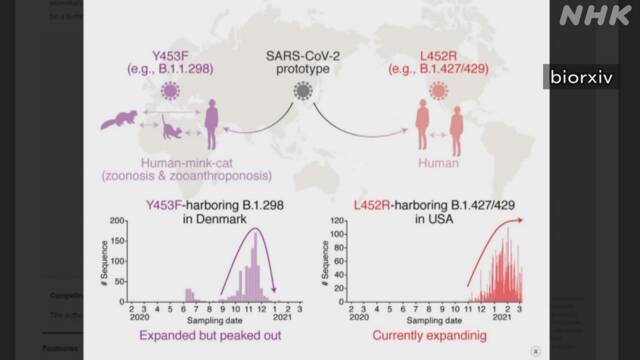A group such as the University of Tokyo has announced the results of a study that some types of immunity, which is common among Japanese people, may weaken the effect of a mutant virus of the new coronavirus that is prevalent mainly in California, USA. ..
This research was compiled by a group of associate professors Kei Sato of the Institute of Medical Science, the University of Tokyo, and published using a system called a "preprint server" that publishes papers before they are officially reviewed.
In addition to "antibodies", human immunity has a mechanism called "cell-mediated immunity" in which white blood cells directly repel viruses.
The group focused on this "cell-mediated immunity" and investigated whether white blood cells of the type "HLA-A24", which is said to be possessed by 60% of Japanese people, can repel the virus.
As a result, it was confirmed by cell experiments that the function of the mutant virus with a mutation called "L452R", which is prevalent mainly in California, USA, is reduced.
Depending on the group, it seems that another immune function actually works, but this type of white blood cell may reduce the effect of immunity.
This mutant virus was confirmed to infect one person in Okinawa in April in Japan.
Associate Professor Sato says, "Cell-mediated immunity plays an important role in human immunity. It is necessary to examine how it affects the effectiveness of vaccines."

